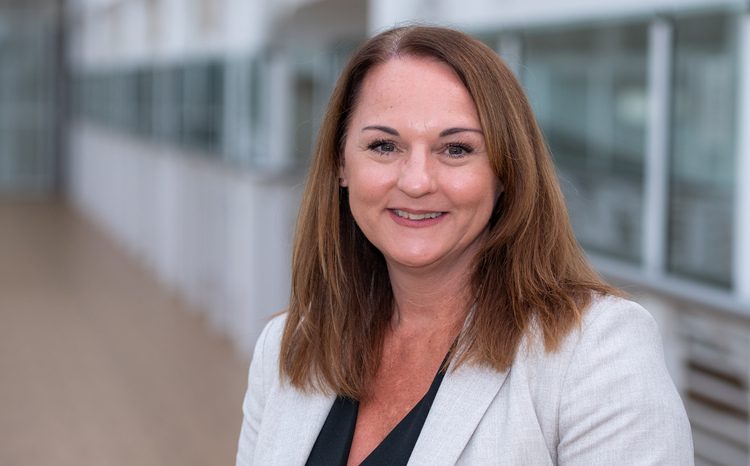On the record
- 26 May 2009
 |
| Bolton town hall |
NHS Bolton was the first primary care trust in England to introduce the Summary Care Record and to extend its use to A&E. Fiona Barr catches up with some of the people involved in the project to find out how it is going and what lessons have been learned.
Anyone who is first in line for a new initiative is taking a step into the unknown, and when NHS Bolton agreed to be the first primary care trust in England to introduce the Summary Care Record it must have wondered what it was letting itself in for.
Before and since the launch of the early adopter programme in Bolton, the SCR has generated massive debate about consent and confidentiality, its potential benefits and drawbacks, and the maturity of the technical solution.
Progress has certainly been slower than the PCT hoped, with SCRs created for just 35% of the population to date, more than two years after the project was launched.
However, Chris Russ, assistant director of IM&T at NHS Bolton, says it is confident it will roll-out the SCR to 60-70% of the population by December and that it will then be in a position to promote the benefits to more reluctant GP practices.
First, catch your IT
One major obstacle for the PCT – and other early adopter PCTs – has been the failure of GP software suppliers to deliver their solutions on time.
Bolton has a mixed economy of GP IT systems from suppliers EMIS, INPS, TPP, HealthySoft and iSoft.
INPS was the first supplier to achieve accreditation for its SCR solution and the first Bolton practices to go live in June 2007 were INPS users.
However, Russ says INPS is currently tackling a problem with its NHS Connecting for Health data centre and its SCR solution. This means roll-out to further INPS practices has been temporarily halted; although the PCT hopes it will be resolved by the end of July.
The other suppliers to receive CfH accreditation to date are iSoft and TPP. The leading software supplier in England, EMIS, is still in the process of achieving accreditation.
For CfH, the lack of haste shown by EMIS has been frustrating. It has also led to suggestions that the supplier is setting a higher priority on delivering its own shared records solutions through EMIS Web than meeting National Programme for IT in the NHS requirements.
EMIS, for its part, has criticised CfH for an accreditation process which it complained was unnecessarily complex and time-consuming.
Back in Bolton, the PCT finds itself in a chicken and egg situation, with demand for and wider use of the SCR dependent on how much of the population is covered, and practices enthusiasm to deploy the system reliant on seeing the SCR used and the potential benefits delivered.
Demand and benefits
Even so, 91,000 people registered at 13 GP practices in Bolton do have an SCR and Russ says that enthusiasm for the service is gathering pace. This is fuelling the PCT’s desire to maximise, as quickly as possible, the number of records that can be uploaded.
He says: “The demand by clinicians for access to the SCR across the Bolton health economy is significantly growing. So far, we have deployed the record in unscheduled care.
“But now we are seeing demand from other areas such as active case managers [community based nursing teams], who are doing medication reviews for patients who can’t always communicate well or remember their medications.”
A key milestone for Bolton has been the introduction of the integrated SCR solution developed by out-of-hours software suppliers Adastra.
The SCR is deployed in unscheduled care settings across Bolton and use in the out of hours service, the walk-in centres and in the GP stream in A&E has risen “exponentially” according to Dr Darren Mansfield, the PCT’s clinical lead for urgent care.
He says: “Now the SCR is integrated into the system it takes two clicks to get to the SCR. That has had a dramatic effect on the number of hits and the benefits we are starting to see.”
Looking to end of life
The initial upload to the SCR contains just the patient’s prescribing history and information on allergies. This has led to widely varying views amongst NHS staff as to whether it has delivered significant benefits.
However, Dr Mansfield says the out-of-hours service – which traditionally does not have access to a patient’s medical history – is already seeing some benefits from that limited information.
He argues there will be greater benefits when information such as end of life data or management plans for patients with long term conditions are added to the SCR.
Bolton is following its fellow SCR early adopter NHS Bury by piloting the addition of end of life data, such as a patient’s wishes re place of death and their end of life care plan.
Dr Mansfield added: “I believe the addition of that information will mean the impact out-of-hours services can make on end of life quality of life would be phenomenal.”
The thorny issue of consent
When NHS Bolton became an early adopter, the consent model for the SCR was based solely on implied consent; with records automatically uploaded unless patients chose to opt-out.
National policy changes since then mean that while implied consent to upload records still applies, patients must also be asked by clinicians for ‘consent to view’ their record at each encounter.
Some GPs and opponents of the SCR remain concerned about the ethics and legality of creating an SCR without explicit consent, although some objectors have been appeased by the introduction of consent to view.
Russ says that, so far, only 0.87% of the Bolton population has opted out of the SCR and Dr Mansfield says he is unaware of any patient withholding permission to view. He says if a patient is unable to give permission because they are too unwell, and a record is accessed, this is logged as a clinical incident.
Russ says that out of the 56 or 57 practices in Bolton, a greater number of surgeries want to be involved in the project than continue to have reservations. But he hopes to address their concerns and provide evidence of clearly demonstrated benefits as the project progresses.
Dr Mansfield says there is a “drip of positive feedback” about the SCR in Bolton and patients themselves are also becoming increasingly aware that they have an SCR or believe they have one whether they do or not.
For NHS Bolton, the priority is to maximise the number of records that are uploaded but Russ says the PCT then wants to bring the SCR into its wider programme of integrated health records involving Lorenzo Regional Care next year.
He adds: “We want the SCR to work with Lorenzo Regional Care and provide access to the SCR for more groups such as district nurses, health visitors, active case managers and intermediate care settings.
“There are 33 different service sin Bolton and we want to provide access to the SCR where it will support and benefit their clinical processes.”
Lessons learned
For Dr Mansfield, the one greatest lesson of the SCR implementation in Bolton so far is that it must be integrated into the systems clinicians are already using.
He points out that use of the SCR is much higher in the GP stream of the A&E department at the Royal Bolton Hospital – where the integrated Adastra system is available – than in the A&E department itself, where emergency clinicians must access the SCR via the Spine.
He adds: “When you are under pressure you just don’t have the time to try and access a record from a clunky system. It has to be integrated into the main clinical system and it has to be instantly accessible.”





